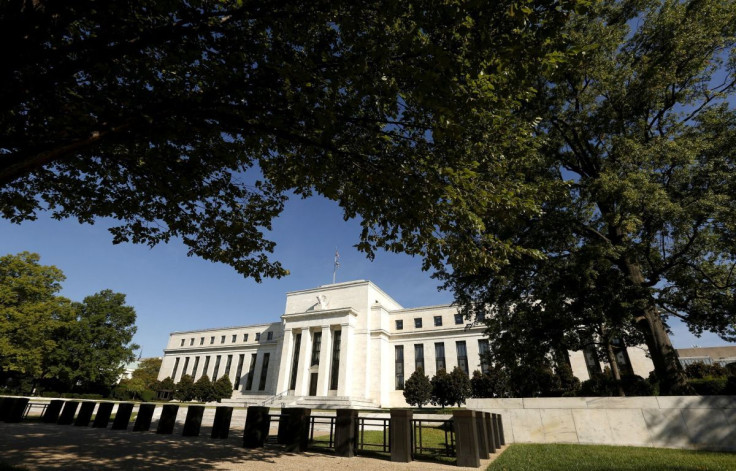Analysis-With Raskin On Thin Ice, Biden May Pick A Moderate For Fed Regulatory Job

With Sarah Bloom Raskin's nomination to become the Federal Reserve's regulation chief in jeopardy, the White House may be forced to opt for a new moderate candidate or leave the post open for the foreseeable future.
On Monday, centrist Democratic Senator Joe Manchin said he would not support Raskin for the powerful role overseeing Wall Street banks due to worries she would discourage them from lending to oil and gas companies.
The White House said on Monday it still hoped to gin up support among moderate Republicans to get Raskin's nomination to the Fed's Board of Governors confirmed by the Senate, where Democrats and Republicans each have 50 seats.
If one Republican came out in support of her nomination, then Vice President Kamala Harris could conceivably cast the deciding vote to put her over the top. But analysts said it was a long shot given Republicans, even those considered moderates, appear united in their opposition.
If Raskin drops out, President Joe Biden will have to find a pick palatable to moderate Democrats and progressives, a tough task.
"We wouldn't be surprised if Raskin withdraws in the next week or two - perhaps sooner," Ian Katz, managing director of Capital Alpha Partners, wrote on Monday. "If the White House decides to find another nominee for the supervision post, we presume it will be someone who's viewed as more moderate."
Raskin, a former senior Fed and Treasury official, did not immediately respond to requests for comment on Tuesday.
Other names for the role previously in the mix: Treasury Undersecretary Nellie Liang; Atlanta Fed President Raphael Bostic; Acting Comptroller of the Currency Michael Hsu; and Richard Cordray, who was head of the Consumer Financial Protection Bureau during the Obama administration and who now oversees student loans.
Mary Miller, a former Treasury undersecretary who until recently was an administrative official at Johns Hopkins University, is a new potential candidate, Isaac Boltansky, policy director for brokerage BTIG, wrote in a note on Monday.
Bostic and Cordray did not immediately comment. Miller could not immediately be reached for comment. Spokespeople for Liang and Hsu declined to comment.
SETBACKS FOR PROGRESSIVES
Raskin was backed by progressives eager for tougher Wall Street oversight, including Senator Elizabeth Warren. But the energy industry staunchly opposed the nomination based on comments Raskin had made suggesting financial regulators should more aggressively police financial institutions on climate change-related financial risk.
While a Raskin withdrawal would be a win for the oil and gas lobby, it is unlikely to fundamentally alter the central bank's regulatory agenda with more Democrats poised to become Fed governors. Raskin's withdrawal should clear the way for two other Democrats, Lisa Cook and Philip Jefferson, to be voted through.
"This should not change the risk that the big banks face from Team Biden taking control of the Federal Reserve ... The plan going forward is the same," wrote Jaret Seiberg, an analyst at Cowen Washington Research Group, although others cautioned it would delay that agenda.
Raskin could be the second Biden banking regulatory pick to falter in the Senate. Saule Omarova, an academic and progressive favorite tapped by Biden to become comptroller of the currency, withdrew last year after failing to win over moderate Democrats.
Despite these defeats, it was unclear if progressives and moderates could unite behind any of the candidates in the mix.
Another option for the White House would be to leave the seat open and have other Fed governors act as the de facto regulation lead, the approach adopted by former President Barack Obama's administration.
Cook and Jefferson could become members of the Fed's Committee on Supervision and Regulation and lead it on an interim basis, Boltansky said. Others said Fed Governor Lael Brainard, a Democrat who Biden has nominated for the central bank's vice chair role, could informally lead the regulation file.
Some Republicans have said they may not back Brainard, although Democrats are united in their support of her.
"Brainard is experienced in these issues, which means her influence will be felt widely at the Fed," Seiberg wrote.
Biden also has nominated Fed Chair Jerome Powell to another four-year term as head of the central bank. Powell is widely expected to be confirmed by the Senate, where he has bipartisan support.
© Copyright Thomson Reuters {{Year}}. All rights reserved.





















